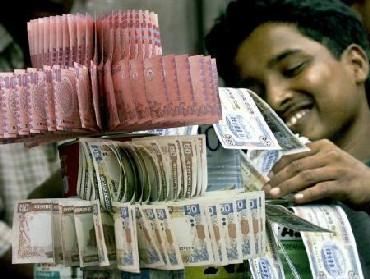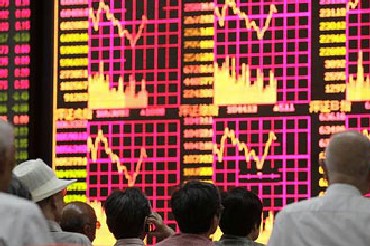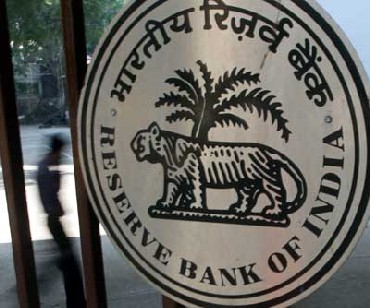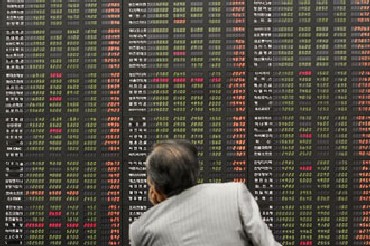Photographs: Rafiqur Rahman/Reuters Mehul Shah in Mumbai
The Indian stock market, hit by global fears and a high inflation-interest rate regime, has been the second-worst performer in Asia this calendar year - a shade above Bangladesh.
The Bombay Stock Exchange Sensitive Index, or Sensex, has declined a little over 18 per cent in 2011.
The Dhaka Stock Exchange's benchmark, General Index, has fallen 25 per cent. Recently, angry investors in Bangladesh took to the street to protest a sharp fall in share prices.
While nothing so dramatic has happened in India, the wealth erosion has been significant. The stock market slump has wiped off Rs 12,14,285 crore of investors' wealth this year. Retail investors, who burnt their fingers in the 2008 market collapse, are not in a hurry to come back.
...
Race to the bottom: It's India versus Bangladesh
Photographs: Reuters
Most major Asian stock markets have lost anywhere between 10 per cent and 15 per cent in this year, as a worsening euro zone debt crisis and fears of a double-dip recession in the US have dented investors' confidence.
Apart from global woes, domestic factors such as soaring inflation, high interest rates and corruption scandals have taken the sheen off Indian shares this year. Foreign Institutional Investors (FII), one of the dominant players in the Indian market, have net-bought shares worth Rs 1,723 crore ($448 million) this year so far, according to Securities and Exchange Board of India (Sebi) data.
"I don't think anybody can say the Indian market is very expensive at this stage," said U R Bhat, managing director at Dalton Capital Advisors (India). "But, the attitude towards risk should change. That's when we can expect good inflows from foreign investors."
...
Race to the bottom: It's India versus Bangladesh
Photographs: Reuters
At on Monday's close of 16,713.33, the 30-stock Sensex traded at 14 times its estimated earnings for the financial year ending March 31, according to Bloomberg data.
The long-term average price-to-earnings ratio for the index is around 15. Global events like the euro zone debt crisis and US economic scenario would determine the risk appetite of investors, Bhat said.
Experts say the lack of economic reforms has contributed to India's underperformance vis- -vis other Asian and emerging markets.
"All emerging markets are facing a challenging environment. But, the political chaos in India has resulted in stalling economic reforms," said Saurabh Mukherjea, who heads the institutional equities business at Mumbai-based Ambit Capital.
...
Race to the bottom: It's India versus Bangladesh
Image: A man walks past the entrance of the Reserve Bank of India headquarters in Mumbai.Photographs: Arko Datta/Reuters
"I expect the Sensex to grind towards 14,500 by year-end, partly because of global woes and partly due to India's economic challenges."
To curb inflation, the Reserve Bank of India (RBI) has raised its key rates 11 times since mid-March 2010. However, this has not resulted in cooling prices, with headline inflation at 9.22 per cent in July.
A majority of market participants expect the central bank to raise rates by another 25 basis points in its September 16 policy meeting.
...
Race to the bottom: It's India versus Bangladesh
Photographs: Reuters
Global rating agency Moody's pegs India's gross domestic product (GDP) growth between 7.5 per cent and eight per cent for the present financial year, as high interest rates and global uncertainties take a toll on economic expansion in the short term.
However, there is no reason to lose hope. Experts believe for investors with a 12-18 months' time horizon and a capacity to stomach short-term volatility, this is a good time to accumulate quality stocks.
"This is a good opportunity to look at some of the high quality names in India, where investors can expect to get more than 20 per cent return in 12 months time period," said Sam Mahtani, London-based director of emerging market equities at F&C Asset Management.







article